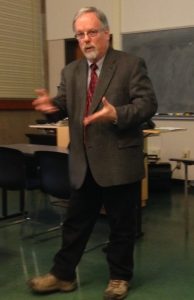 Rocket Math is dedicated to improving math achievement. Long-time educator Dr. Don Crawford founded Rocket Math because of his passion for effective educational tools. He believes all students can succeed in math and dedicated his company to making it happen. Their achievement and success motivate students more than anything else. Rocket Math’s mission is to help students succeed in math.
Rocket Math is dedicated to improving math achievement. Long-time educator Dr. Don Crawford founded Rocket Math because of his passion for effective educational tools. He believes all students can succeed in math and dedicated his company to making it happen. Their achievement and success motivate students more than anything else. Rocket Math’s mission is to help students succeed in math.
Motivated by success.
 Rocket Math’s Online Game educational app teaches and develops fluency in basic math facts. The app is unique in a couple of respects. First, the game focuses students on their progress in learning math facts rather than distracting them with a cutesy game format. As students fill in their individual Rocket Chart, they become motivated by their progress in learning the facts and developing fluency. Moreover, they also develop confidence and improved self-esteem as a by-product of the process.
Rocket Math’s Online Game educational app teaches and develops fluency in basic math facts. The app is unique in a couple of respects. First, the game focuses students on their progress in learning math facts rather than distracting them with a cutesy game format. As students fill in their individual Rocket Chart, they become motivated by their progress in learning the facts and developing fluency. Moreover, they also develop confidence and improved self-esteem as a by-product of the process.
Evidence of effectiveness in teaching.
 Second, the rocketmath.com website uniquely provides real-time evidence of its effectiveness. Rocket Math charts all its users, showing they are learning and developing fluency with basic math facts. Go to their Evidence of Effectiveness page, and you can see students’ results on fluency tests. The tests are given four times in each learning track (pre-test, 1/3 through, 2/3 through, and post-test). For example, over 55,000 students have completed the Multiplication learning track. The chart shows they began with an average fluency of 11 problems per minute at the pre-test. Those students finished the Multiplication Learning Track with an average of 21 problems per minute. Student scores show they are more fluent at each milestone in all 16 learning tracks, from beginning Addition to Fraction and Decimal Equivalents.
Second, the rocketmath.com website uniquely provides real-time evidence of its effectiveness. Rocket Math charts all its users, showing they are learning and developing fluency with basic math facts. Go to their Evidence of Effectiveness page, and you can see students’ results on fluency tests. The tests are given four times in each learning track (pre-test, 1/3 through, 2/3 through, and post-test). For example, over 55,000 students have completed the Multiplication learning track. The chart shows they began with an average fluency of 11 problems per minute at the pre-test. Those students finished the Multiplication Learning Track with an average of 21 problems per minute. Student scores show they are more fluent at each milestone in all 16 learning tracks, from beginning Addition to Fraction and Decimal Equivalents.
The most powerful thing you can do to improve math achievement.
Helping students develop fluency with basic math facts is the single, most powerful thing school administrators can do to improve student math achievement. There’s no excuse for allowing students to struggle and count on their fingers or rely on multiplication charts while trying to do math. Rocket Math has the mission of fixing that for anyone who uses their app. They even offer a 30-day initial, complimentary subscription so you can see that it works before paying a dime. Rocket Math has a money-back guarantee that using their app will improve student fluency in math facts. Rocket Math continues to grow thanks to the enthusiasm of its customers.




